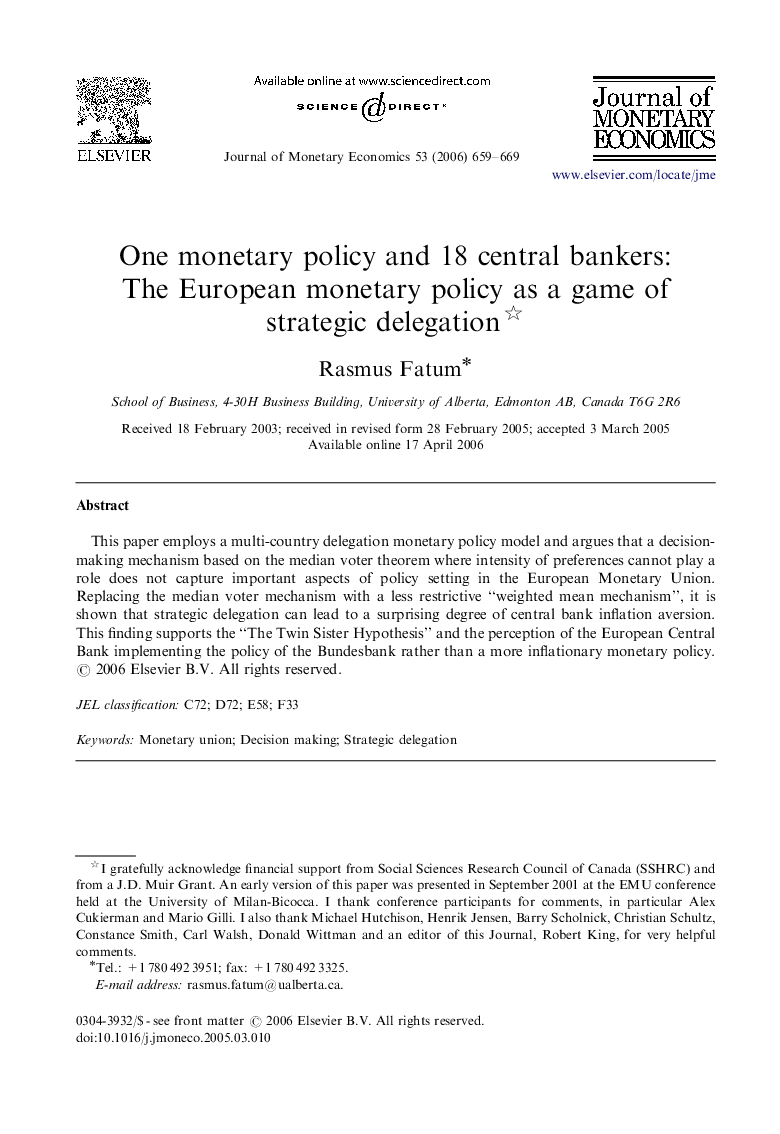| Article ID | Journal | Published Year | Pages | File Type |
|---|---|---|---|---|
| 967641 | Journal of Monetary Economics | 2006 | 11 Pages |
Abstract
This paper employs a multi-country delegation monetary policy model and argues that a decision-making mechanism based on the median voter theorem where intensity of preferences cannot play a role does not capture important aspects of policy setting in the European Monetary Union. Replacing the median voter mechanism with a less restrictive “weighted mean mechanism”, it is shown that strategic delegation can lead to a surprising degree of central bank inflation aversion. This finding supports the “The Twin Sister Hypothesis” and the perception of the European Central Bank implementing the policy of the Bundesbank rather than a more inflationary monetary policy.
Related Topics
Social Sciences and Humanities
Economics, Econometrics and Finance
Economics and Econometrics
Authors
Rasmus Fatum,
